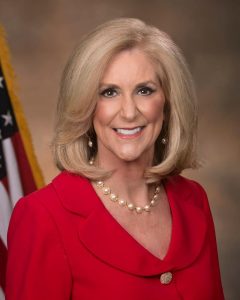 Attorney General Lynn Fitch joined a nationwide investigation this week into Meta Platforms, Inc., formerly known as Facebook, for providing and promoting its social media platform, Instagram, to children and young adults despite knowing that such use is associated with physical and mental health harms. The Attorneys General are examining whether the company violated state consumer protection laws and put the public at risk.
Attorney General Lynn Fitch joined a nationwide investigation this week into Meta Platforms, Inc., formerly known as Facebook, for providing and promoting its social media platform, Instagram, to children and young adults despite knowing that such use is associated with physical and mental health harms. The Attorneys General are examining whether the company violated state consumer protection laws and put the public at risk.
“Recent reports demonstrate a link between social media use and serious harm to the mental, emotional, and physical well-being of young people, particularly young girls,” said Attorney General Lynn Fitch. “Decreased self-esteem, increased body-image dissatisfaction, and rampant cyberbullying too often lead to depression, suicidal thoughts, eating disorders, and self-harm. We cannot turn a blind eye to the impact on our children.”

The investigation targets, among other things, the techniques utilized by Meta to increase the frequency and duration of engagement by young users and the resulting harms cause by such extended engagement. Recent reports reveal that Meta’s own internal research shows that using Instagram is associated with increased risks of physical and mental health harms for young people, including depression, eating disorders, and even suicide.
Last month, Attorney General Fitch and 51 other Attorneys General wrote the leadership of the U.S. Senate Committee on Commerce, Science, and Transportation Subcommittee on Consumer Protection, Product Safety, and Data Security in advance of their hearing with Facebook whistleblower Frances Haugen. The Attorneys General wrote, “When our young people’s health becomes mere collateral damage of greater profits for social media companies, it is time for government to intervene. These hearings are an important start.”
And, in May, Attorney General Fitch joined a bipartisan coalition of 44 Attorneys General in urging Facebook to abandon its plans to launch a version of Instagram for children under the age of 13: “It appears that Facebook is not responding to a need, but instead creating one, as this platform appeals primarily to children who otherwise do not or would not have an Instagram account.” In September, Facebook announced it was pausing Instagram Kids.







